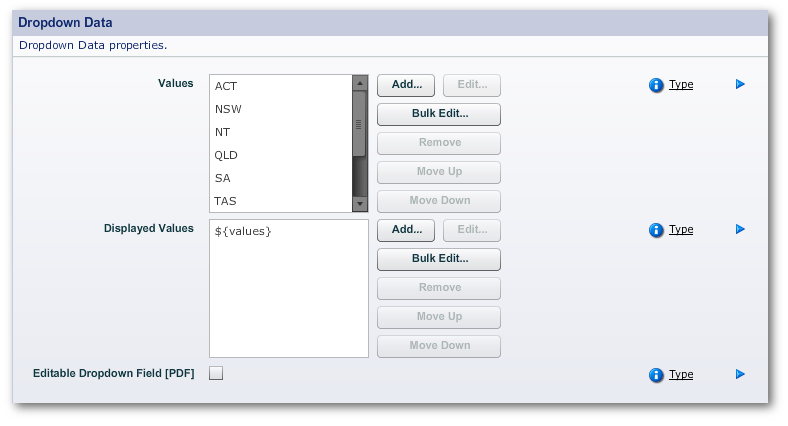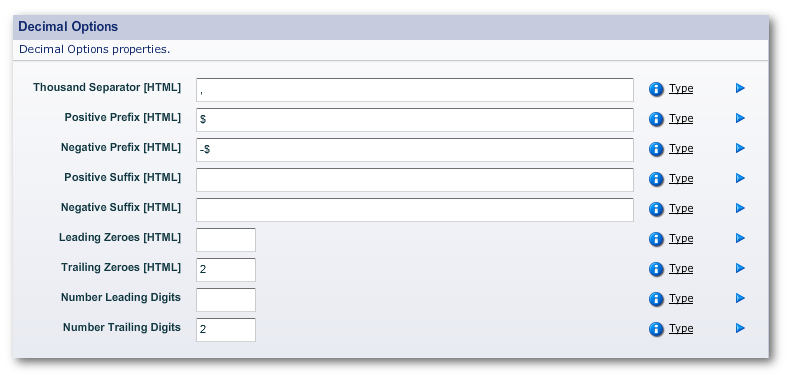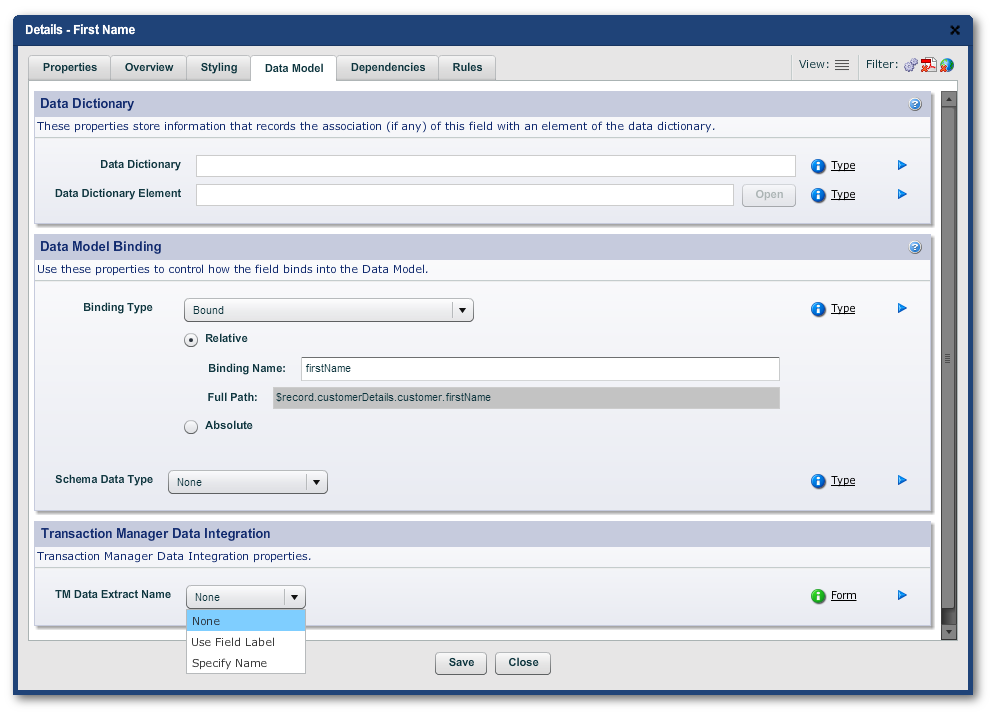
Field Data |

|

|

|

|
|
Field Data |

|

|

|

|
|
|
||
A writable field's data is dealt with in 2 ways in Composer:
•Data properties
which is about the data contents of the field, but considered in isolation from the rest of the form, with the exception of radio buttons that form part of the one group (as they are, after all, just the one data object with several form fields working together)
•Data Model
which is how the relationship of the field to the data structures of the form's outputs
These are contained in "Edit Properties" in "Properties -> Data". There are a number of panels, depending on the type of field:
•Data (always present in writable fields)
•Dropdown Data (in addition to the above for a dropdown menu field)
•Decimal Options (when the field is a decimal number)
The properties shown in both the Advanced and Standard Modes of the panel vary with the nature of the field. Here are some typical examples:

Examples of the Data Panel (Advanced Mode)
Some brief notes on the panel's fields (Advanced Mode):
•Initial Field Value
Use this as an ad hoc way of repopulating the field. If you need to repopulate a number of fields from a database lookup or as a general configuration of the form, see here for an example of how this is done.
•Maximum Data Length
This prevents the user from entering more characters into the field. If you want to do more than merely having the field stop working once the character limit is reached — such as warnings, in-line messages and other helpful cues to asssist users to get to submission — please see Validation.
•Data Format
This is the raw data sent from the form and as stored in Transaction Manager. This property is often specified for PDF (in XFA data description specification).
The "${data.format}" is explained in Scripting and Dependencies.
•Data Display Format
This can be different from the raw format, especially so with dates. See Data Types.
•Data Clearing Policy
An important factor in Privacy.
•Values
Appears with fields that have several states, such as Boolean fields (see Field Types). These states can be named and given an order of precedence. The "Blulk Edit" button enables you to import a list of state names from a text file.
You use this panel to edit a dropdown menu field's values and displayed values. The displayed values appear in the menu on the form. For example, the form could, say, display "Northern Territories" in the dropdown; but when users select that value, the form passes the value "NT" to the TM server. The "${values}" entry means that all the values equal the displayed values. See Scripting and Dependencies.

Dropdown Data Panel (Advanced Mode)
This panel appears for writable numeric fields and are self-explanatory. In the example below, the field is a currency field and so the positive and negative prefixes have a dollar sign.
The two fields for leading and trailing digits have two properties each for HTML forms and unspecified form types. The leading and trailing values should be the same for both form types.

